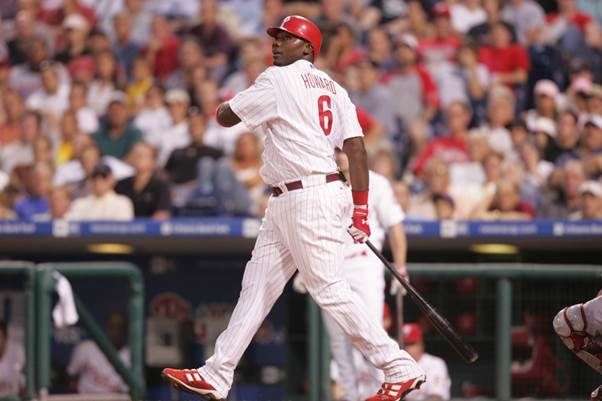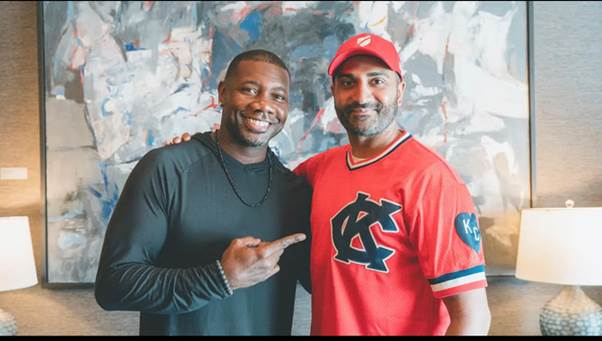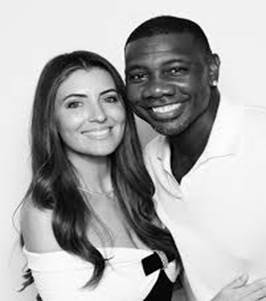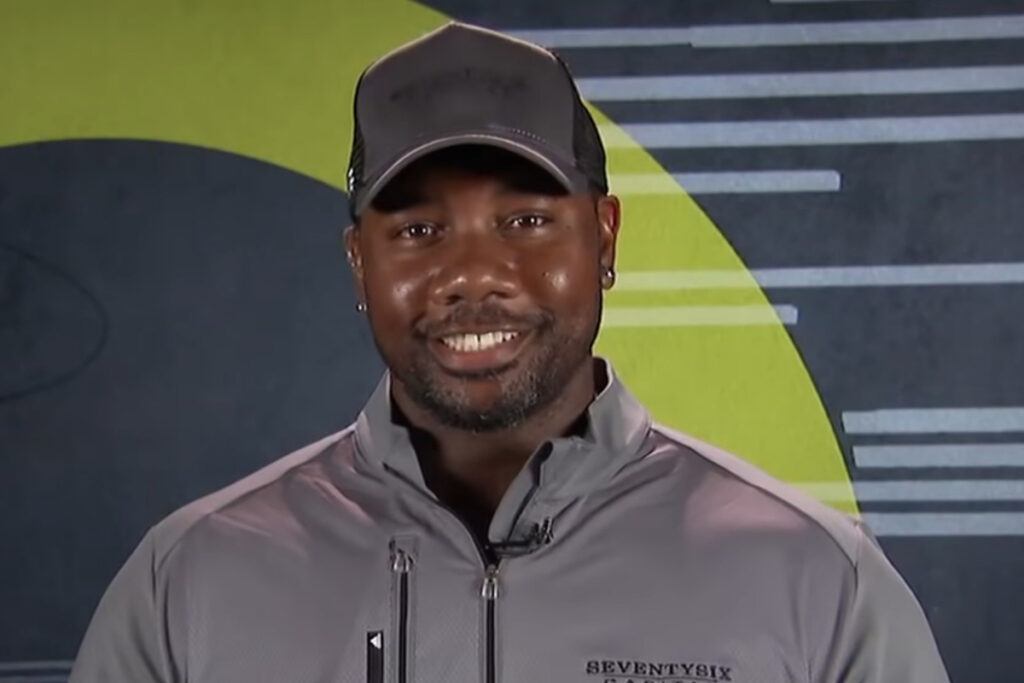When it comes to Major League Baseball’s greatest power hitters, the name Ryan Howard is one that stands out. Known for his towering home runs, intimidating presence at the plate, and leadership in the Philadelphia Phillies’ historic 2008 World Series championship victory, Howard’s career is a testament to what can be achieved with raw talent and strategic business acumen. However, while his career on the field garnered much attention, his financial journey off the field has equally been impressive. With an estimated net worth of $90 million as of 2025, Howard’s financial legacy is as significant as his sports achievements.
From humble beginnings in St. Louis to becoming one of the most feared hitters in baseball, Howard’s story is one of perseverance, excellence, and smart financial moves. This article delves into the career and wealth of Ryan Howard, examining how he built his fortune both through his incredible baseball skills and savvy business decisions.
Early Life and Baseball Beginnings
Ryan James Howard was born on November 19, 1979, in St. Louis, Missouri. Raised in a family with a strong sports background, Howard’s affinity for baseball developed early. His father, a former baseball player, and his mother, who was a teacher and active in the local community, instilled a strong work ethic in him from a young age. Howard attended John Burroughs School in St. Louis, where he excelled at multiple sports but truly began to stand out in baseball. It wasn’t long before scouts noticed his natural power and sharp instincts.
After high school, Howard attended Mississippi State University, where he continued to hone his skills. His impressive performance on the field as a college player earned him a place in the 2001 MLB Draft, where the Philadelphia Phillies selected him in the fifth round. Little did anyone know, this selection would mark the beginning of a meteoric rise in both Howard’s baseball career and financial success.

Breaking into the MLB: From Minor Leagues to Superstar
Howard spent some time in the Phillies’ minor league system, where he refined his skills and proved himself as a top prospect. In 2004, after an impressive run in the minors, Howard finally got the call-up to the Major Leagues, where he made an immediate impact.
His breakout season came in 2005, when he played his first full season with the Phillies. Howard quickly made a name for himself with his power-hitting abilities. That year, he belted 22 home runs and drove in 63 RBIs in just 88 games, quickly establishing himself as one of the most exciting hitters in the league. This success laid the foundation for his historic career and set the stage for his eventual rise to stardom.
In 2006, Howard truly solidified his place among the MLB’s elite players, winning the National League Most Valuable Player (MVP) award after hitting 58 home runs, the most in the league, and posting a 1.084 OPS (on-base plus slugging). This performance earned him his first of several All-Star selections and made him a fan favorite not just in Philadelphia but across the baseball world.
A Monumental Contract: Howard’s Financial Breakthrough
Howard’s early successes led to a massive payday. In 2009, the Phillies rewarded Howard’s contributions to their success by signing him to a five-year, $125 million contract — one of the largest contracts ever for a first baseman at the time. This deal locked him in as the team’s cornerstone player and ensured that he would be paid handsomely for his talents for years to come.
That contract marked a financial turning point in Howard’s life, with annual salaries reaching up to $25 million during his peak years. Throughout the duration of the deal, Howard’s income from his MLB contract alone consistently added millions to his net worth, and as he continued to dominate on the field, he also became a highly marketable figure. This deal was the bedrock of his $90 million fortune.
Power on the Field: Home Runs and Consistent Performance
Howard’s career on the field continued to be marked by impressive offensive numbers. Known for his prodigious power, he was one of the most feared sluggers in baseball during his peak years. From 2006 to 2011, Howard averaged 40+ home runs per season, making him one of the most consistent power hitters in the MLB. During his career, Howard hit 382 home runs, drove in 1,194 RBIs, and posted an impressive career slugging percentage of .515.
His 2008 season was particularly memorable. Not only did Howard lead the Phillies to a World Series title, but his postseason performance — including key home runs in the playoffs — solidified his reputation as a clutch hitter. His efforts earned him a second Silver Slugger Award and further increased his marketability.
Despite a few injury setbacks in his later years, Howard remained a prominent figure in the MLB, playing for the Phillies until 2016, when he officially retired. While his performance was not as dominant in his later years, his legacy was already cemented. Off the field, Howard began to transition into his next phase: financial growth beyond the game.
Endorsements and Off-Field Earnings
Throughout his career, Howard was not just known for his on-field prowess but also for his lucrative endorsement deals. His larger-than-life persona, combined with his success as one of the game’s top hitters, made him an ideal candidate for companies looking to associate with a strong, dynamic brand.
Howard’s endorsement deals with brands such as Nike, Under Armour, and Rawlings — all of which targeted athletes and sports enthusiasts — added millions to his earnings. These partnerships were lucrative, especially when he was playing at his peak. While the exact figures remain private, estimates suggest that these endorsements added an additional $10 million to his net worth during his career.
Additionally, Howard participated in various charity events, speaking engagements, and sponsored appearances, which bolstered his brand and wealth. His relationship with fans and sponsors kept him a prominent figure in the public eye long after his playing days.

Real Estate and Investments: Building Wealth Beyond Baseball
Even as a young player, Howard began making strategic decisions to preserve and grow his wealth. Real estate investments became a significant part of his post-playing financial life. He purchased multiple properties, including a large estate in Florida, which he still owns today. The estate features a luxurious home with ample space for relaxation and entertainment, reflecting Howard’s preference for privacy while enjoying the fruits of his labor.
Beyond residential properties, Howard also invested in commercial ventures and business interests that have contributed to his wealth. Over the years, Howard has carefully cultivated a diversified portfolio that balances his passion for sports with business ventures, including a stake in sports apparel companies and local startups. While specific investments haven’t been widely publicized, these ventures have added considerable value to his net worth.
Retirement and Post-Career Success
After his retirement in 2016, Howard faced the challenge that many professional athletes do: transitioning from a public career to life beyond the game. Howard, however, had spent years preparing for this moment. He didn’t just rely on his wealth from playing baseball. Instead, he turned his attention to a variety of entrepreneurial pursuits, both in sports and in business.
One of his primary post-career roles has been working as a television analyst for ESPN and various baseball networks. These gigs have not only kept him connected to the game but have also brought in a steady stream of income. Analysts and commentators in the MLB world often earn high six-figure salaries, which has added to Howard’s earnings since stepping away from the field.
Moreover, Howard has become a mentor for younger players entering the league, offering his insight on everything from hitting to navigating the complexities of a professional career. These coaching roles, though not necessarily as high-paying as his on-field earnings, have kept him in the public eye and allowed him to remain financially active.
Personal Life and Family
Throughout his career, Ryan Howard remained relatively private about his personal life. Married to his wife Krystle, Howard has been able to maintain a low-key, family-oriented lifestyle. He has two children and often shares glimpses of family life on social media, where he engages with fans in a more personal way than some of his peers.
Howard’s family is central to his values. His upbringing, which was rooted in a sense of community and responsibility, remains an essential part of his identity even as his wealth has grown. His charitable contributions, particularly those aimed at youth development and inner-city sports programs, reflect these values.

Legacy and Impact
Today, as one of the top former athletes in Philadelphia, Ryan Howard’s net worth of $90 million speaks volumes not only about his success on the field but about his financial management and savvy. By capitalizing on his brand, investing wisely, and taking a hands-on approach to his wealth, Howard has built a financial empire that will likely continue to grow long after his final season.
Though he is no longer on the field, Howard’s influence on baseball remains undeniable. His legacy is secure — not just in the statistics and accolades he earned but in the way he has handled his post-career ventures. He is a testament to how athletes can transcend their playing days by making smart financial choices, diversifying their interests, and building legacies that last far beyond their prime years.

